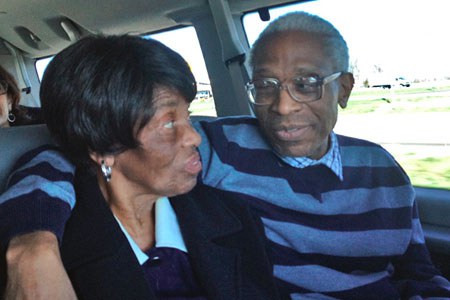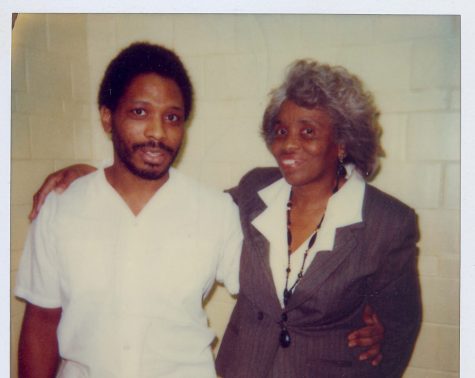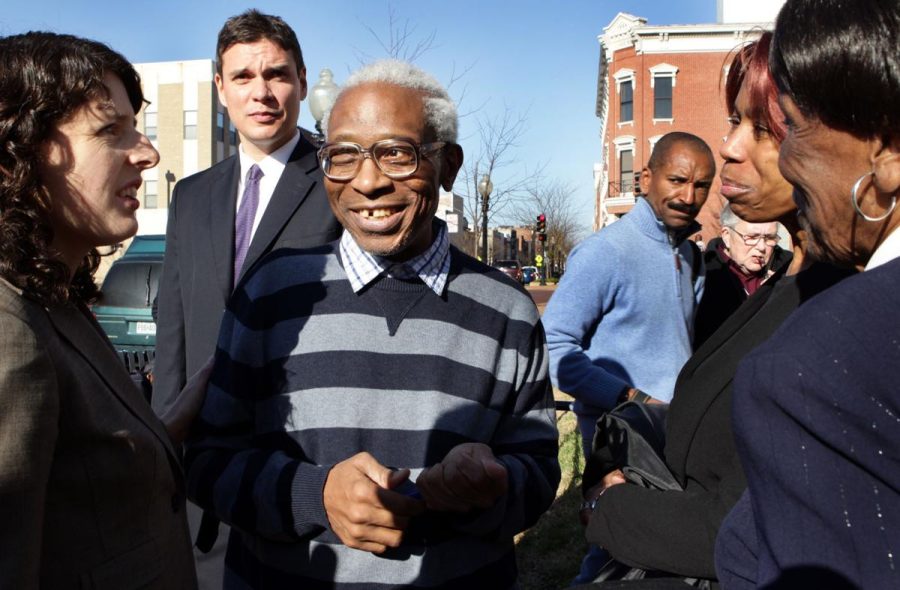Justice or Injustice System: George Allen, Jr.
Allen being released from prison.
February 4, 2022
In 1982, 31-year- old Mary Bell was discovered deceased in her apartment by her boyfriend who lived with her. Bell had several crimes committed against her and St. Louis, Missouri police were suspecting a known offender. Six weeks later, a 26-year-old, black male, George Allen, Jr., was arrested while walked in the neighborhood, to be questioned for her murder, mistaking him for their suspect. Detective Herbert Riley realized they had made a mistake but questioned him anyway.

Allen had an extensive history of mental health and even hospitalizations for schizophrenia. He ended up giving a taped confession which he later recanted, as it was coerced by the police. In his confession, Allen does say he is under the influence of alcohol, and some of his answers conflict with the facts of the crime. There was nothing that connected Allen to the crime; his blood type didn’t even match the DNA found at the crime scene, yet they continued to prosecute him for Mrs. Bell’s murder.
Prosecutor’s primary piece of evidence was his confession. Allen even presented an alibi and three witnesses who saw he was snowed in at home at the time of the crime, but at his second trial he was convicted on capital murder, rape, sodomy, and first degree burglary and sentenced to 50 years for capital murder and 15 years consecutively on each of the other three charges, or 95 years in prison. Allen had served 30 years when a judge said the prosecution had violated his due process and he was released on bond November 14, 2012.
In a little over a year later in January, the charges against Allen were dismissed and he filed a federal civil rights lawsuit.

At 60 he passed away from natural causes in his bedroom October 2016. His lawsuit was settled for $13,825,000 which would be shared equally between the state and the city.
Allen had 30 years of his life stolen and only four years out of jail after his release due to his death. He was aided by the Innocence Project which according their website, “works to free the innocent, prevent wrongful convictions, and create fair, compassionate, and equitable systems of justice for everyone. Our work is guided by science and grounded in antiracism.” To learn more about people who have been victims of the justice system, go to https://innocenceproject.org.















